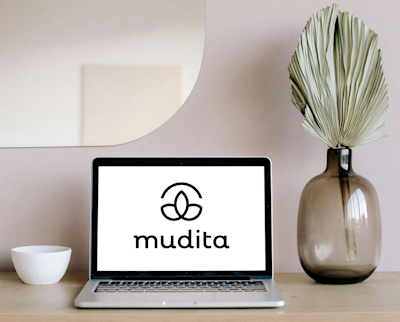
Efficiency Guide: How To Be Satisfied With The Outcome
Have you ever wondered why sometimes you are highly productive while on other days you feel that you’ve barely done anything?
When we evaluate our accomplishments, we become accustomed to using terms such as efficiency or productivity, though not many of us are aware of their interpretations. Despite the big difference, some people manage to mix them up or even use them interchangeably.
Practically, it is essential to differentiate efficiency from productivity as they are characterized by two different approaches, qualitative and quantitative, each serving different goals.
Productivity is dedicated to time management improvement (quantitative approach). Efficiency to perfecting the outcome and finding the right work-life balance.
Imagine you’ve completed all of your daily tasks at work, you’ve had plenty of calls and meetings, you’ve written an article and done some shopping. Although you’ve managed to do a lot, you don’t feel satisfied with the outcome. Thinking back on your day you might realize that you wasted a lot of time in a traffic jam commuting to different meetings, some of which were pointless. Perhaps you didn’t have enough time to read a book or have dinner with your family. Maybe the article you wrote wasn’t as good as it could’ve been because you were in a hurry working on it between calls, etc. Although you were productive, you were not efficient.
Where does the difference lie? We define efficiency as an internal metric meaning that we act to the best of of our capabilities. Basically, it reflects your satisfaction with both the process and the output and is measured based on your self-judgement or self-assessment.
Productivity though, is a metric used mostly by others to estimate your output, so it is external. This term is more commonly used, as it’s trackable and represents the amount of work someone has done in a given period of time.
The importance of both terms is significant, so we have split it into two articles and here we intend to keep the focus on how to be more efficient. To improve your time management skills and boost the speed of work that will particularly help you with repetitive and manual tasks please check our productivity article.
As we’ve determined, efficiency is about self-satisfaction, with our own performance. We can rejig it as a way of focusing on things that truly matter to us. Becoming more efficient resonates with the ability for quality brainstorming, generating better ideas and being creative.
Being efficient is more of a state of mind and way of living; to implement an efficient lifestyle you should concentrate on two aspects: the mindset change and the right actions.
Let’s begin by working on our mind. Changing the way we think is halfway to success. It’s important to note that the advice below isn’t that easy to employ and may require some time and regular work in terms of your mindset.
Mindset changes:
Ask the right questions and act You’ve got a lot to do, haven’t you? First, stop complaining, as this only causes stress and wastes your energy. Instead, ask yourself how you can deal with the tasks, where you should start to get it done, and how you can do it faster. These questions will stimulate you to start acting, so start right after you find the answers to your questions.
Learn how to say no and be more selective Stop saying “yes” to every request. We accept many inquiries due to the unwillingness to upset anyone, as we subconsciously want to be liked. Remember, you cannot be liked by everyone and your readiness to deal with non-self tasks is all about your time. Time which you could spend on something else. Do not waste it on something you feel obliged to do, be selective. This also applies to meetings. Set up specific times for every meeting you’ve agreed on and put off or cancel those which are pointless or that you have no desire to have.If you are saying “no” to a figure of authority, someone like your boss for example, it’s wiser to propose alternatives. Carefully explain why you cannot do a given task, or why you cannot attend a particular meeting and be sure to suggest an alternative deadline, time, or anything else relevant to your situation.
Forget about your problems Your personal problems can strongly affect you at work. It is highly important to leave your problems outside if possible. To assist with this challenging task, start by keeping your distractors away from you. Try to meditate to release your mind from intrusive thoughts or talk through a problem with a colleague in order to unburden yourself.
Employ positive thinkingDid you know that happy people are more efficient? Several studies run by Shawn Achor, Lyubomirsky, King and Diener and others showed optimism and happiness lead to better work. Spend time understanding yourself and wake up to positive thoughts. Remember that happiness comes from the inside, so only by working on your mind can you become truly happy.
Rewire your brain and relax your mind We might be spending too much time overthinking, especially if our work requires a large amount of intellectual effort. Turning off your mind is an essential action to achieve greater efficiency. The best way to relax your mind is through meditation.You can also take a nap or focus on physical activities such as walking, eating, or exercising. Stay present. Instead of checking your phone, or getting distracted by other things, try to remain in the moment. You will see how much more enthusiastic and effective you can become after such activities.
Love what you do It sounds primitive, doesn’t it? If you do what you love, it is much easier to be efficient. Sometimes we have to do things we don’t like very much, but if your demotivation lasts for a long time, decide on a considerable change (a job, company, direction you’ve selected). So many people struggle with work they don’t enjoy, don’t be one of them.
Other helpful methods to boost your efficiency are based on actions. So, below is a list of tricks you may find effective.
Designer Michal Jarosz working in the Mudita office
Actionable changes to try
Set some exciting goals Setting up some meaningful goals will lift your motivation levels to get things done. Start with large-scale goals and break them up into smaller goals that will lead to the large-scale goals being eventually completed. Even reaching a smaller goal releases a lot of enthusiasm and a willingness to continue acting.
Modify your environment and personalize your space Another trick to raise your efficiency is to modify the environment you’re in, so that you don’t feel distracted. Some of us find it easier to focus by being at home, some outside, some prefer open plan office spaces. Select the right place for yourself.If you are unable to choose or you don’t have a choice, try to make your workplace as comfortable as possible: remove your mobile and other devices out of sight (if you don’t require them at work), reposition furniture the way you like it, set the right lighting level, clean the desk, put a flower or your favourite cup on it etc. You can also turn on quiet music in the background if it helps you to focus. Find out what works best for you.
Utilize your most productive time right Knowing which time of day we are at the top of our energy levels is important, for some people it’s early in the morning and for others, it’s late evening. Spend this time on the most important tasks you have and plan any other activities accordingly.
Create your to-do list and cut it in half It is always beneficial to dedicate 5 minutes every day to organize your time, creating to-do lists and setting up priorities. When creating a plan, as a rule, we overestimate our possibilities, forgetting about break time, minor routine tasks and other time gaps.As a result, we often feel disappointed, as we couldn’t pursue the plan we wanted to follow. To avoid frustration it’s better to remove the least important half from the list and put it off for another day. Keep on doing this until you are able to measure your capabilities right.Focus only on accomplishing things that matter.
Keep time for non-urgent routine tasks Among the tasks we have there are few that aren’t of much importance but we’d better do them sooner rather than later. Among those are paying the bills, calling your parents or texting your friends. Prioritizing them is easy. If you don’t want to put them off for tomorrow, or you’ve already done it repeatedly, book 30 minutes of your least productive time to complete them at once.
Alex multitasking in the office
Stop multitasking It is a known fact, according to a lot of research, that multitasking negatively affect the ability to complete tasks well. We are configured to concentrate on one thing at a time. So, every moment we switch to another task and shift back we require time to refocus again. This time is a waste.
Use 80/20 rule According to Pareto’s law, 20% of our actions lead to 80% of the results. Basically it means we should select 20% of our activities that will result in 80% of our desired output and focus on them.
Concentration lost, don’t push yourself too hard, switch the task Do you have a task you’re struggling to concentrate on, so much so that headphones and a cup of coffee don’t help? Stop doing that task, it won’t work anyway. Instead, switch to another more exciting task for an hour or so. This can help you gain the concentration on the major task back.
Daria reading a book on environmental design on a Mudita chair outside.
Keep time for self-development When we set up our priorities, we try to complete work-related tasks first so that we can spend the rest of the day on ourselves, however it’s not always the case. Often, we have work overload so we can’t deal with it in 24 hours, and the next day we have even more tasks as new ones appear. As a result you might end up having no time for reading or self-improvement.The solution is simple. Set aside one hour daily to spend on self-development, it will become sacred, so you can read, meditate, exercise or do other useful activities for yourself.
Identify your best intervals To stay efficient and prevent lost focus, one should take regular breaks to refresh the mind and body. For this you might need to identify your perfect intervals. There are many systems out there stating how long one should work and what should be the optimal duration of breaks in between. We would say it’s individual.Don’t follow the rules, create a system that works best for you.
Don’t take too much on yourself, delegate the tasks We aren’t almighty, so we cannot deal with everything ourselves. To free up your time for more meaningful work delegate some of the tasks to someone who can do them faster and better, or someone who can gain new skills while doing it.
Make use of commuting time If you’re spending a lot of time on commuting each day try to utilize it correctly. Read or listen to a book, news, magazines, watch a TED talk or other educational videos, do online courses or just take notes for brainstorming. You behold how much you get to know without spending any extra hours. Commuting time also works best for planning your day or checking emails instead of using your working hours.If you are driving, select the right information channel that doesn’t require much focus, as concentrating on two tasks at the same time isn’t the right option.
Pay attention to your surroundings Look at the people who surround you, do they contribute to your effectiveness? Some have the ability to take away your energy by discouraging, demotivating or constantly disturbing you. Try to avoid such negative souls or minimize your contact with them.Spend more time with those who matter, those who inspire and motivate you to grow both workwise and as a person.
Note down new things you have learned At the end of each day write down 3 new things you have learned or done. Even simple points such as learning why horseshoe crabs are important for us, learning where the best cake place in your city is, learning a new running technique and so on, can make a difference. Five minutes a day spent on learning can boost your self-esteem, increase your hunger for knowledge and motivate you to improve your daily outcome.
Stay fit and healthy To be efficient it is essential to be physically fit and have enough rest. Make sure you get enough sleep, exercise, drink enough water and eat fruit or vegetables on a daily basis.
Listen to your body If you feel tired, get some rest, if you feel sleepy, go to sleep. Drinking coffee or energy drinks isn’t the best solution as it doesn’t last long, it can also worsen the situation later. The best thing you can do is to listen to your body and behave accordingly.To sum up, we advise that you to apply all of the aforementioned techniques gradually, try to be more disciplined and be patient with yourself. Nothing will happen in an instant but the sooner you begin the faster you will get your desired outcome.
We’d Love to Hear from You
Hopefully we can help you accelerate your journey in reaching the top of your efficiency. If you enjoyed reading this article and found it helpful please recommend it to others.
Is there anything you’d like to add, have we missed anything? If you’re interested in sharing your experiences with us or writing a guest post for us, send us an email via hello@mudita.com!
Please feel free to get in touch via social media (send us some photos or videos too), you can find us on Facebook, Twitter and Instagram, let’s connect! To learn more about Mudita, take a look at our website and our other posts.
If you enjoyed reading this article, please share and recommend it!
Related stories

Desk-scaping: The art of decluttering your workspace
A decluttered space eliminates distractions and does not disrupt the flow of your work.

Achieving Work-Life Balance Through Mindful Tech Use
How do you use technology to support your work-life balance and well-being?

Mudita’s Summer Reading List Recommendations
This summer, make the most of your downtime with these engaging reads, recommended by the Mudita Community.
If you'd like to receive the best stories from our blog, keep up to date with our progress and get notified about our product releases and special discounts.